Last year, the humble fringe really made its comeback. Spotted on myriad celebrities and influencers alike, a fringe has the instant ability to elevate any hair style. From tousled and broken a la Daisy Edgar-Jones to full and thick – there are so many ways to adopt this 'do and trust us when we say this – it will always looks unfailingly chic.
However, with hairdressers and salons closing in Lockdown 3.0, it looks like, if we're set on that gorgeous fringe, some of us are going to have to take matters into our own hands. Needless to say we should all be doing a lot of research before we reach for the scissors. With that in mind we're here to guide you through the process, just in case you simply can't wait until hairdressers and beauty salons reopen.
Cutting Your Own Fringe At Home
While the preferred option should ALWAYS be to leave your hair in the hands of the pros, there are several worthy video tutorials (see Jen Atkin's below) and nifty techniques that make cutting a fringe at home a viable option.
Here, Grazia’s contributor Gina Martin shows you how with three (tried and tested) DIY techniques to cut a fringe at home.
Disclaimer: I am not a hairdresser. If you are, you should probably close this tab right now because by God are you going to be annoyed and disappointed. These are not professional techniques, but they do work.
Section Your Hair
If you’re starting from scratch (AKA don’t have a fringe) you’re going to need to section off your hair. First, you should wet your hair to make it easier to cut, and so that you can see the length clearly. Next, find your parting by combing all your hair back (like you’re doing a slicked back wet look a la Gigi Hadid) while simultaneously push the hair on the crown of your head forwards. Though you’ll find your hair falls to wherever your natural parting is, you want to make a middle parting.
TIP: If you’re doing your this in a mirror, take a picture – you’ll be surprised how wonky your parting is it even if it looks perfect in the mirror.
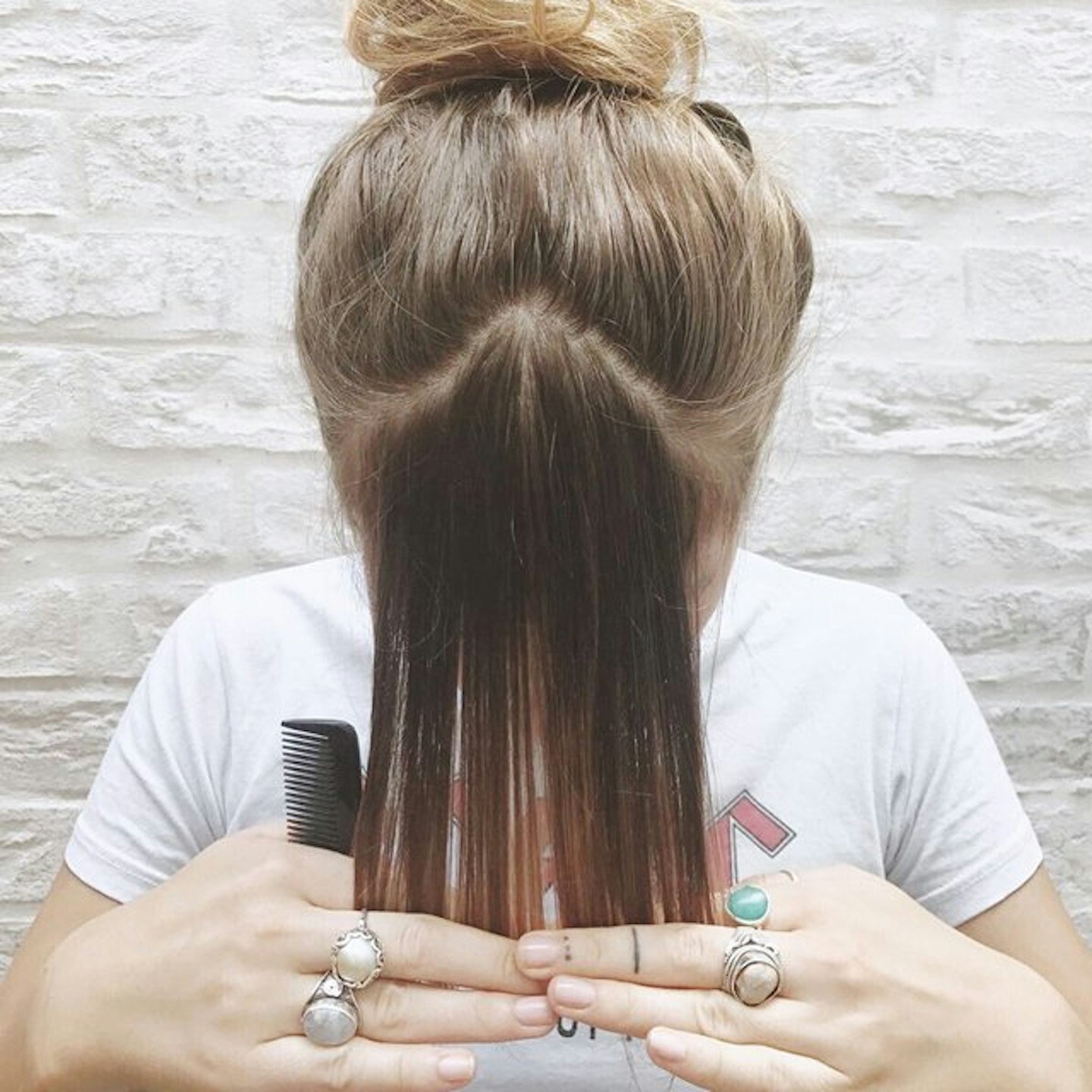
Time To Start Creating That Fringe
It is important to note that the further back the peak of your parted hair is the thicker your fringe will be. I suggest starting fairly shallow – just over an inch from your hairline should be enough for a thin fringe – as you can always make it thicker later by taking more hair from the back. Once you’ve decided on the thickness of your fringe, part the hair currently hanging over your face on both sides from that middle point to your side burns. Then, tie the rest of your hair back.
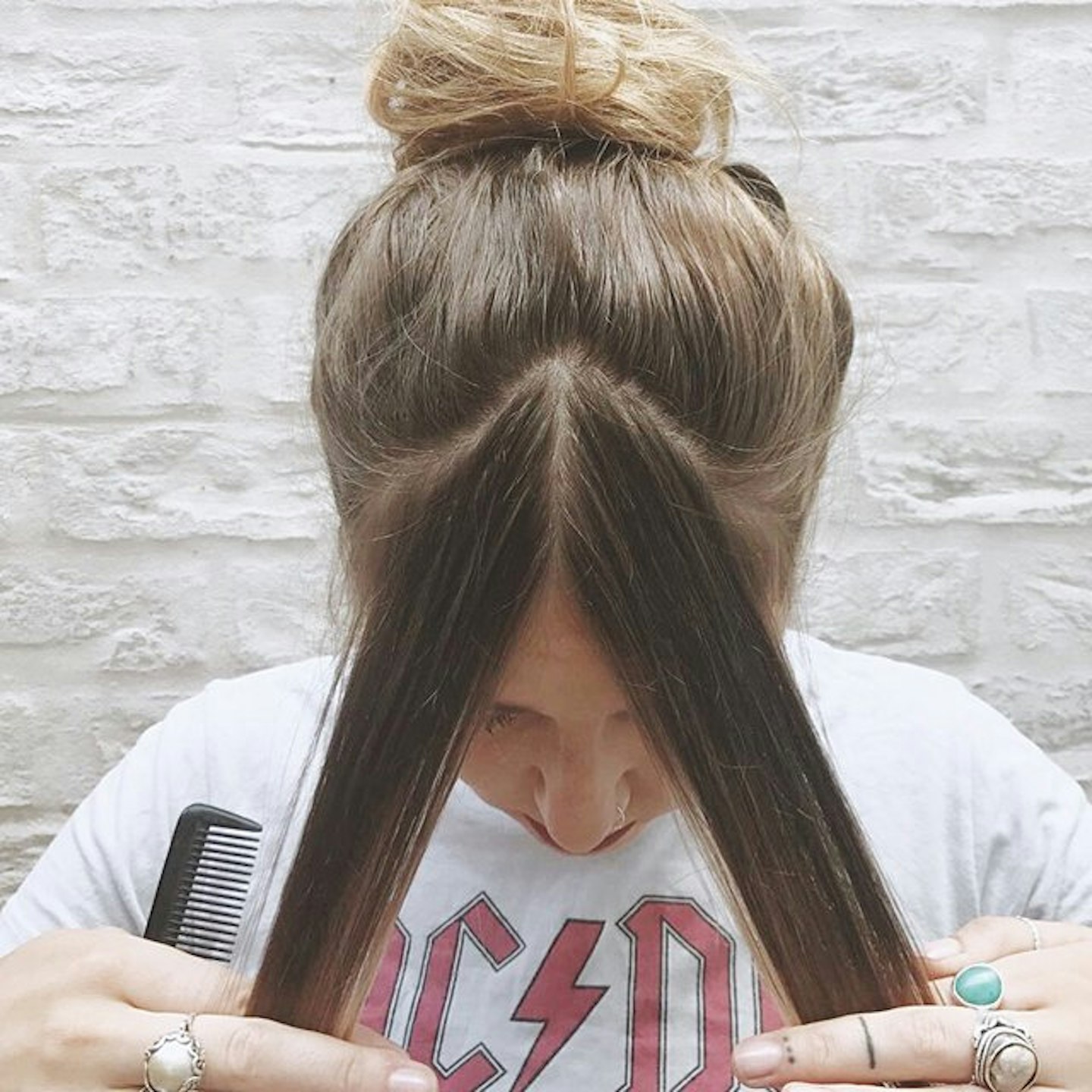
The Twist and Cut
This technique is only for full or side-swept fringes. I saw it on YouTube a few years ago and never looked back. Simply, take the section of your hair that you prepared, twist it one full turn to the right, hold with two fingers and cut across. Ta-da.
TIP: Because your hair is twisted it’s hard to see how long your fringe will be, so always cut it a third longer than you want, then neaten up the shape created with the techniques below.
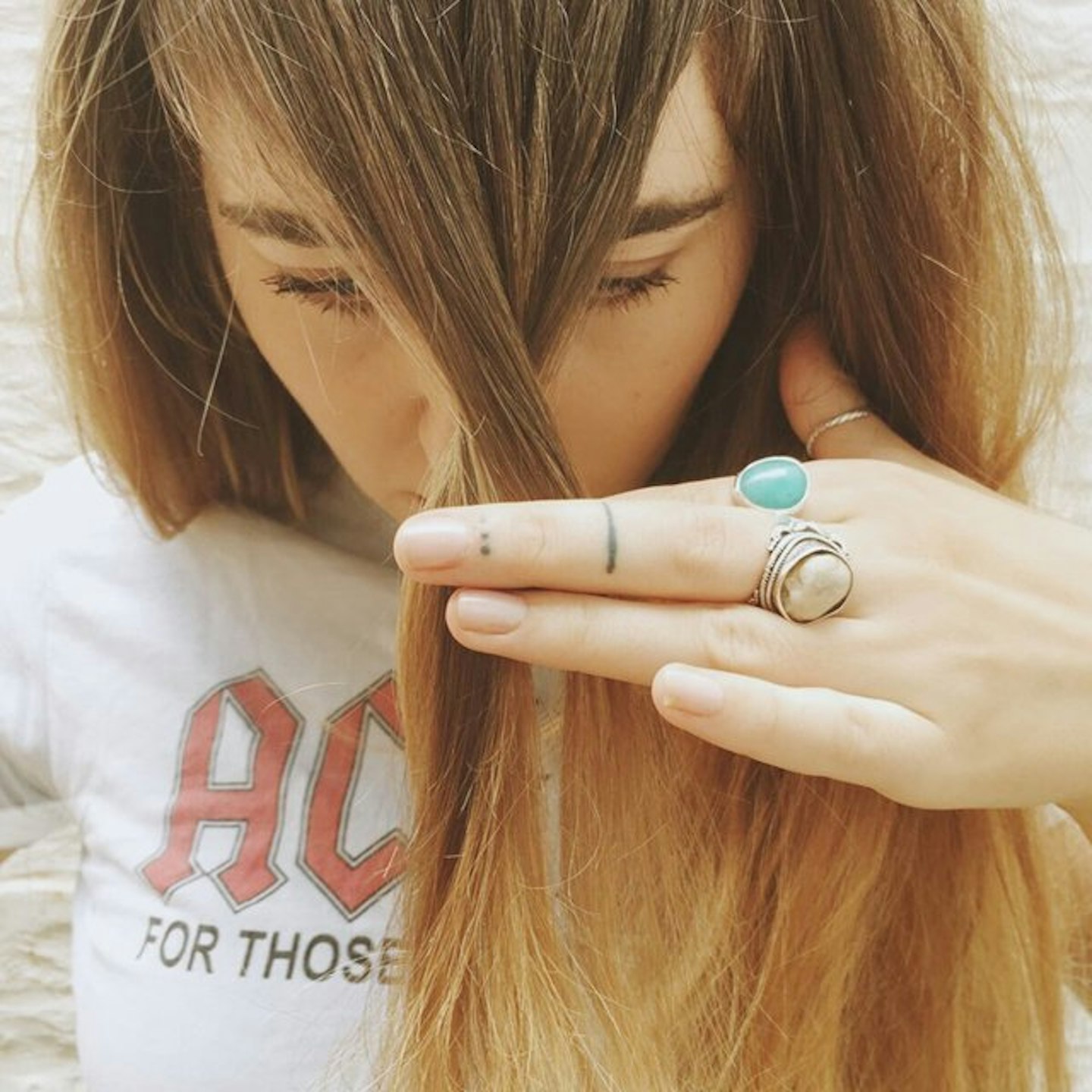
The Razor Technique
Never, ever cut your fringe dead straight across. It’s what nightmares are made of. For a more natural feel, you need a slightly jagged edge and slicing with a razor makes this relatively easy to create. Hold your tool vertically against the inner edge of your fringe and drag it down the hair going ever-so-slightly back and forth. Cutting with a razor means you can remove weight at the same time so that it looks a little softer. Britney use to do this for her killer noughties fringe and anything Britney did circa 2005, we should do (apart from the 1,000 push ups a day, obvs).
TIP: For side bangs or a full fringe, a good guide is that the shortest part should be hitting the bottom of your eyebrows and the longest part should be around the top of your ears.
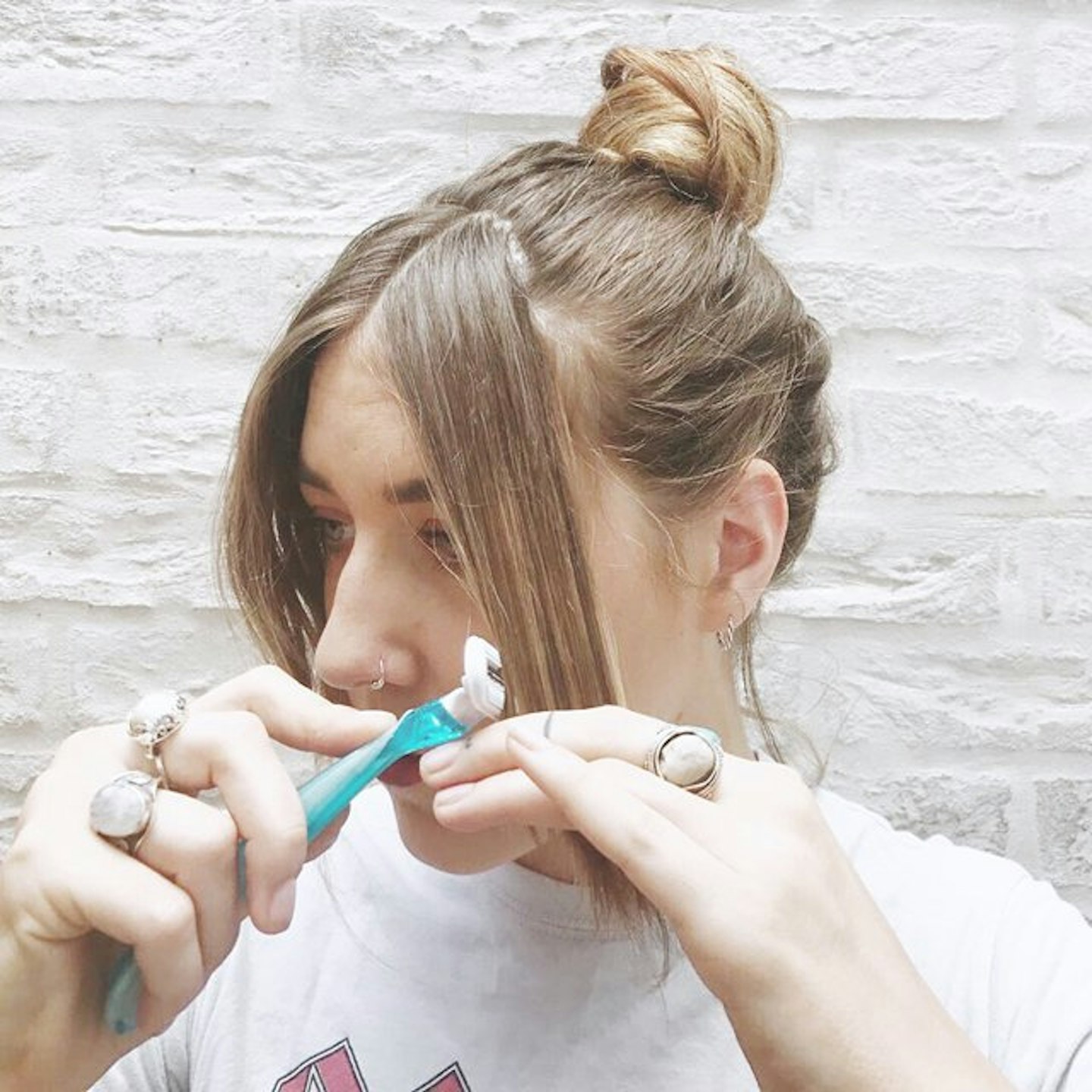
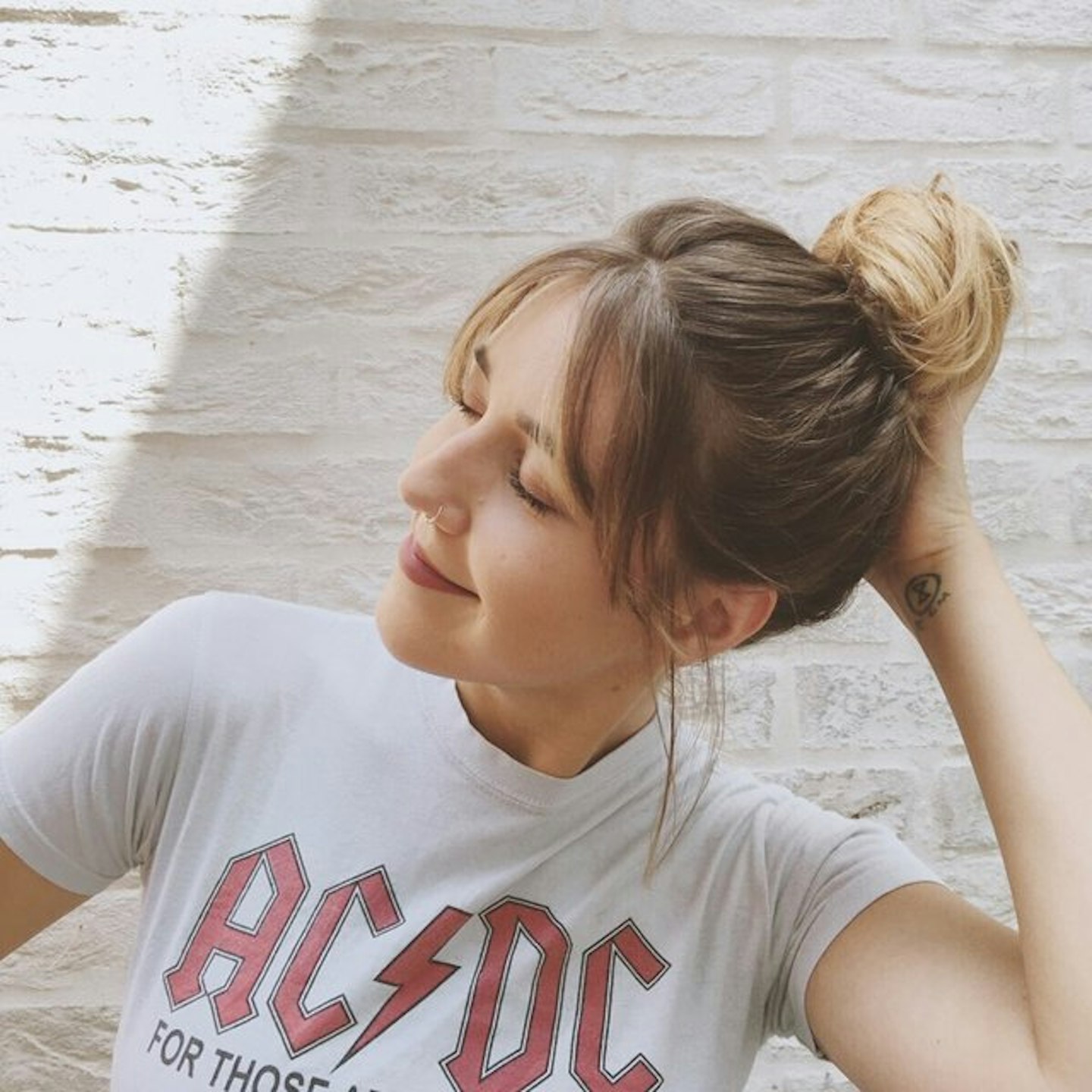
The Point Cut Technique
If you’ve cut your fringe and it's too blunt - don’t fear, just spend a while putting this technique into practice. With your scissors facing (almost) horizontally and only slicing around half a centimetre into the ends, cut little slices from the bottom all the way along until the thick edges are dispersed, and the slope is even.
TIP: Use this technique if you’re trimming your fringe, it won’t change the shape and will keep the edges light.
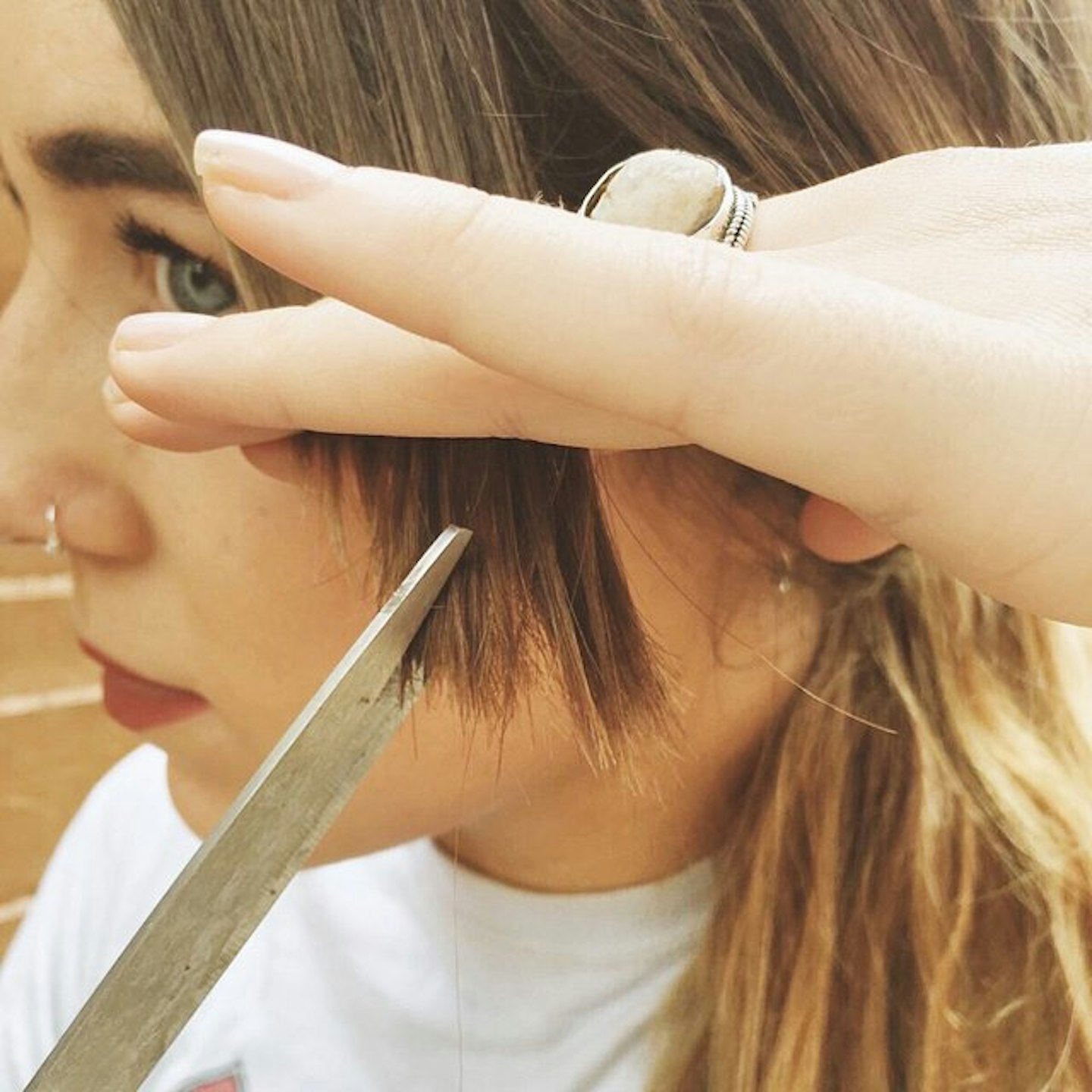
Thinning hair (The Good Kind)
If you’re lucky enough to own a pair of thinning scissors, dragging them through the bottom third of your fringe will take the weight out of the bottom and make it infinitely less maintenance. You can buy these at House Of Fraser for £8.99 and believe me, it makes cutting any fringe 758,987 times easier.
So there you have it, three techniques that will help you create a light or heavy natural fringe. You’re welcome.

Shop: everything you need to cut your fringe at home
Hair Cut Tools
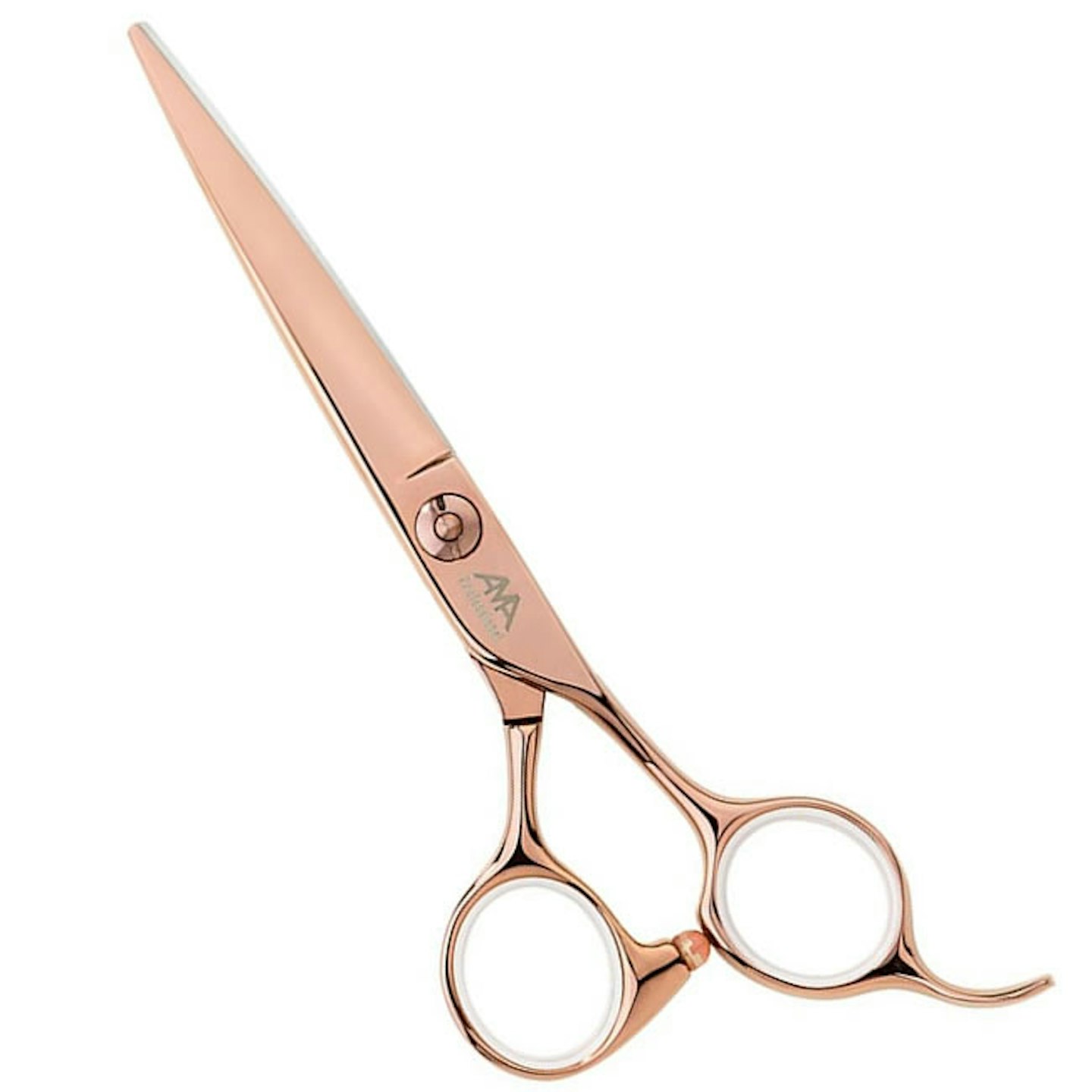 1 of 5
1 of 5Ama Rose Gold Hairdressing Scissors, £95
For a professional cut from the comfort of your home, invest in these powerful, sharp blades. Made from stainless steel with short handles – these sturdy scissors give you complete control for precise cutting.
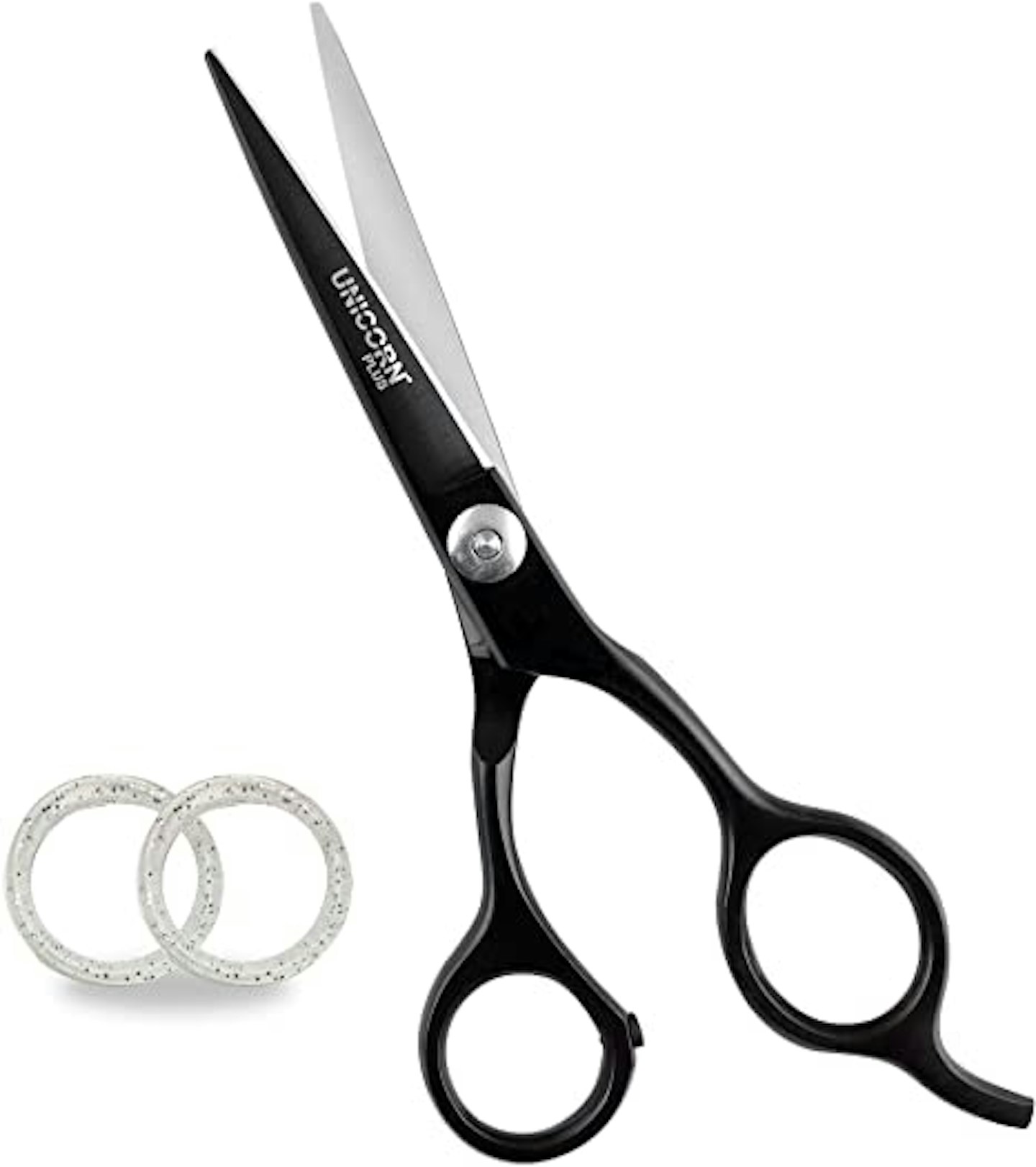 2 of 5
2 of 5Professional Hairdressing Scissors, £7.99
For a cheaper option, try these pro scissors from Amazon.
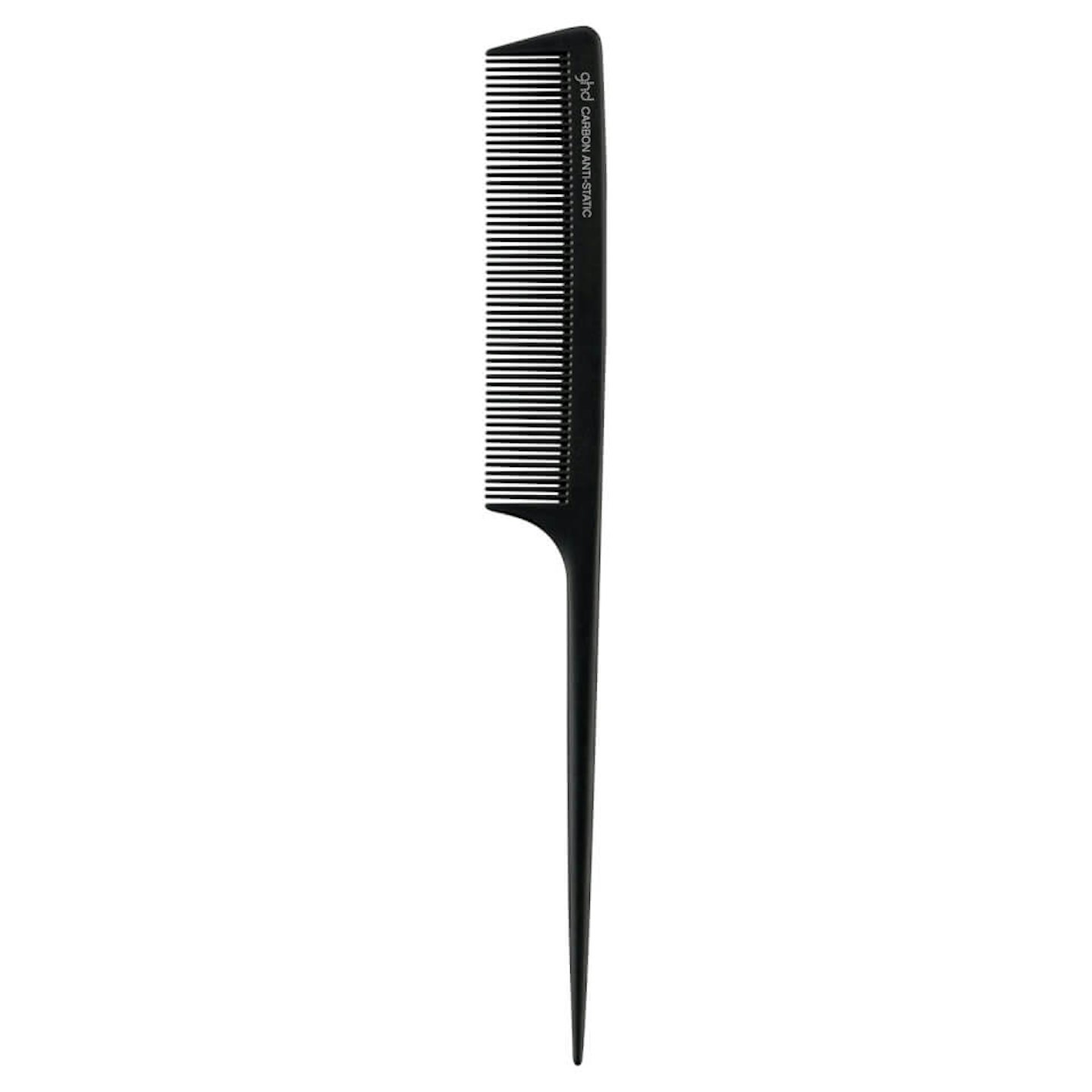 3 of 5
3 of 5ghd Tail Comb, £8.50
A tail comb is the perfect tool to section hair before cutting. Simply run the point down the centre of your head (or wherever you want to part the hair) and voila – a super straight parting.
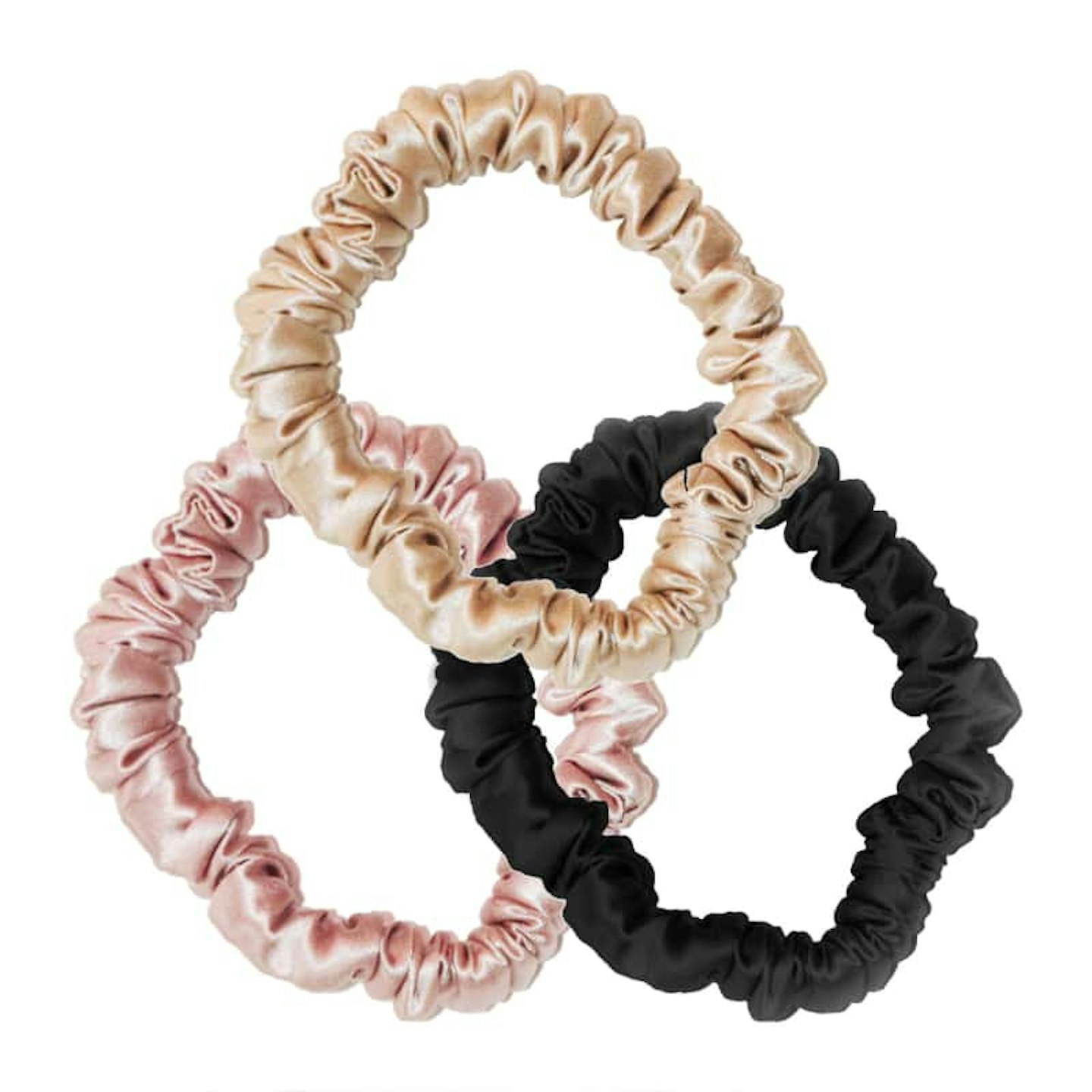 4 of 5
4 of 5Slip Skinnies Hair Scrunchies, £39
If you're cutting a fringe, it's best to keep the rest of your hair out of the way to avoid any accidental snips. We love these super soft slip scrunchies that don't pull or snag strands.
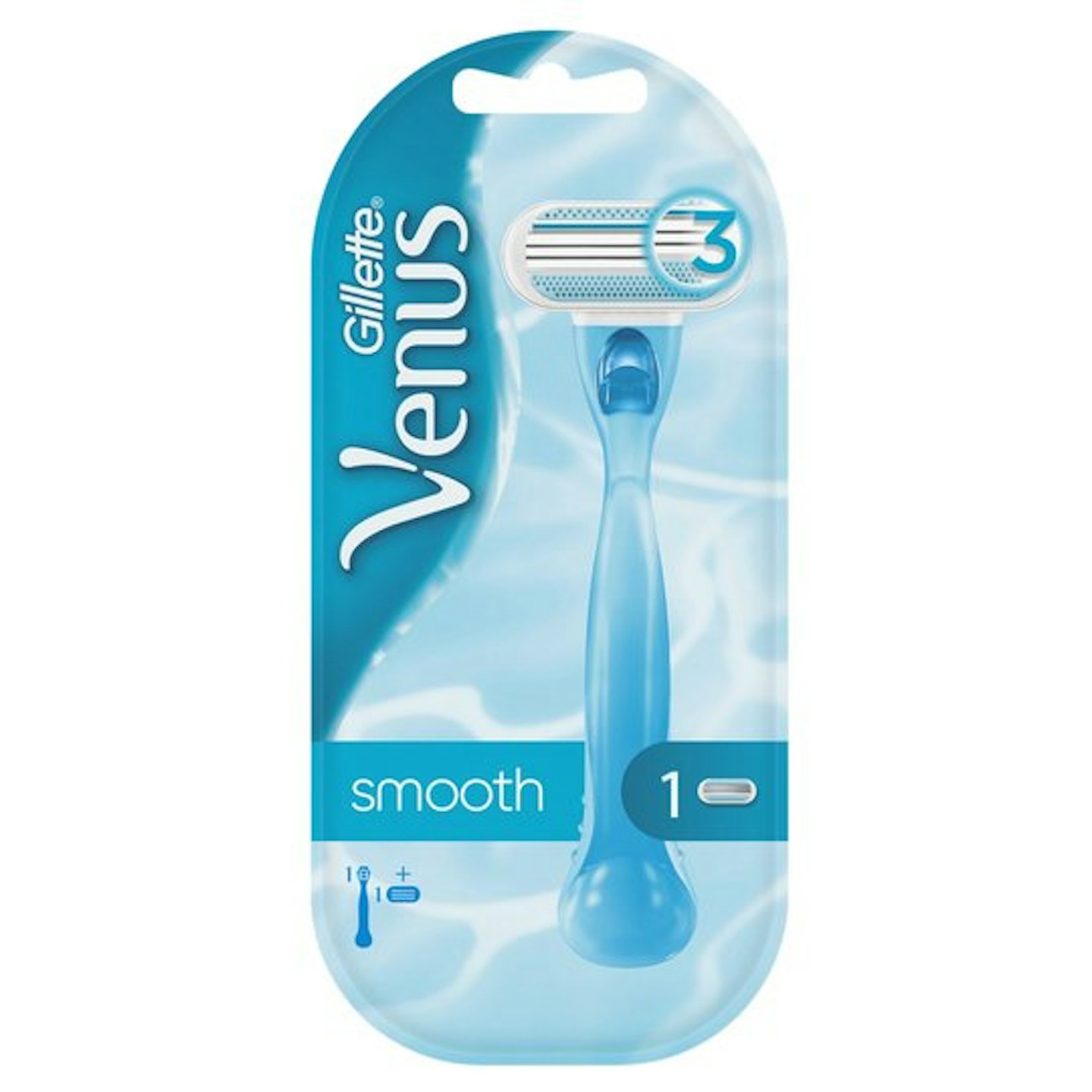 5 of 5
5 of 5Gillette Venus Smooth Razor, £6.99
If you want to follow Gina's razor technique to soften the edges of your freshly cut fringe - get yourself a Gillette razor.
If you need any more guidance, watch the Kardashians' Hair Stylist, Jen Atkin's useful tutorial on how to cut your own hair at home...
READ MORE: How To Cut Your Own Hair At Home Without Messing It Up
